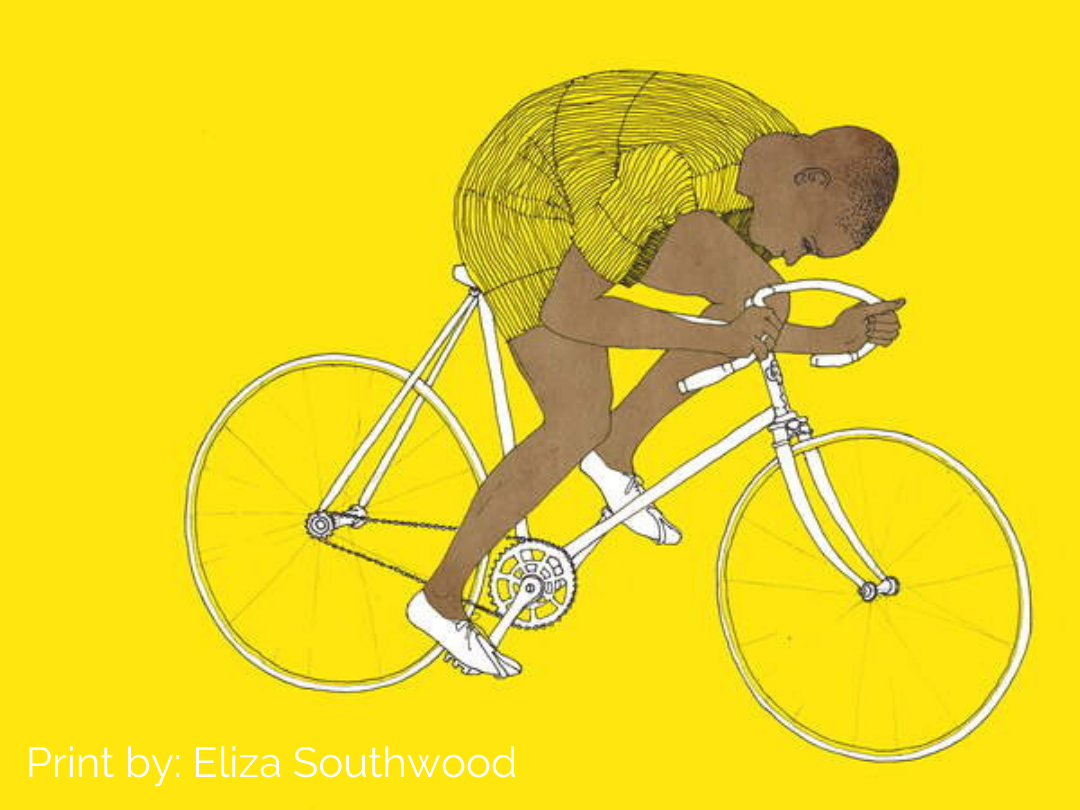Guest Writer – Dr. Ray Black
Over the course of Black History Month 2022, we have highlighted a different cyclist of color each week in our small but earnest attempt to increase diversity, equity, and inclusivity in cycling. On the last week of Black History Month, we are most grateful to Dr. Ray Black, professor of African American Studies at Colorado State University, for taking the time to pen the following piece on Major Taylor.
 This Black History Month (BHM), I am thinking of my frequent riding partner’s advice: look ahead where you want to go. He challenged my habit of looking down at the road or parts of my bike instead of ahead. The one exception is a quick glance behind, as we check on each other during a ride.
This Black History Month (BHM), I am thinking of my frequent riding partner’s advice: look ahead where you want to go. He challenged my habit of looking down at the road or parts of my bike instead of ahead. The one exception is a quick glance behind, as we check on each other during a ride.
As an African American cyclist, BHM is a time to glance back in order to look ahead. This means thinking about the life and career of Marshall “Major” Taylor, the first professional Black cyclist.
Born in 1878, Taylor’s life and career spanned a time of progress and regression. The dawn of the new century bought progress to cycling like the pneumatic tire and bicycle clubs who advocated for better roads. These clubs sponsored races that made stars of talented athletes. With audiences sometime numbering in the thousands, their exploits were shared in newspaper headlines across the world. The event that brought attention to Taylor was his competing and finishing a six day race (you read that right!) in December of 1896 at New York’s Madison Square Garden. Cycling over 1,700 miles, Taylor finished eighth out of 28 riders.
Earlier that year, the Plessy v. Ferguson decision made separation of the races, Black from White, the law of the land. In the six day race, Taylor’s competitors did not know he was Black before the event. Taylor was verbally taunted and physically attacked the whole race. This was not new: from the time he began riding in 1890, Taylor was assaulted before, during and after races when he was not explicitly excluded because of the color of his skin.
However, Taylor had many supporters, from the Indianapolis bike shop owner Tom Hay, who gave the young man a job in his shop, to Louis D. “Birdie” Munger, a champion racer who became a prominent cycle manufacturer. Munger coached and guided Taylor to his first professional race in 1896 as well as his last, an old timer’s race in 1917. Taylor’s professional career included many firsts by an African American including the 1899 world
sprint championship in Montreal, Canada. The following year, when the organizations governing racing in the United States allowed Black cyclists, if they paid a $500 fine, Taylor won the American sprint championship.
A success in the United States, Australia and France, the rigors of the sport and what we now call the micro- and macro-aggressions of racism took their toll on Taylor. After a fourteen year career, he retired in 1910. He died of a heart attack in the charity ward of Chicago’s Cook County Hospital and was buried in a pauper’s grave in 1932. Another pioneer, Carter G. Woodson, the second African American to graduate with PhD from Harvard, created Negro Literature and History week in 1924. Dr. Woodson’s precursor to our BHM was meant to highlight Black achievements. BHM was meant to bring forth the successful experiences of African Americans like Taylor.
What Taylor could not see was the legacy he created. Individuals like Ayesha McGowan, the first African American Woman professional road cyclist; Nigel Sylvester, the first African American professional BMX rider; and James Bethea, former Fort Collins resident and the first African American professional mountain biker. He might be proud of groups like the Black Foxes, “an international collective of unapologetically Black cyclists” or the many cycling groups bearing his name, Major Taylor.
With my partner’s advice to look forward, this quick look back at Taylor and his progeny shows us that through recognition and support of cyclists of color and difference, we can continue to move forward improving diversity and inclusion in cycling.
– Ray Black
https://www.cnn.com/2021/04/20/sport/ayesha-mcgowan-cyclist-cmd-spt-intl/
https://www.liv-cycling.com/global/campaigns/representation-matters-ayesha-mcgowan/23833
https://twitter.com/nigelsylvester
https://collegian.com/articles/aande/2016/01/foco-cyclist-marked-history-as-first-profesional-african-american-cross-country-mountain-biker/
https://www.theblackfoxes.com/manifesto
http://www.majortaylorassociation.org/
“The Six Day Race: The Story of Marshall Taylor” https://youtu.be/HdBUSkYmeP8
